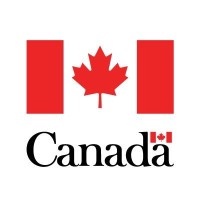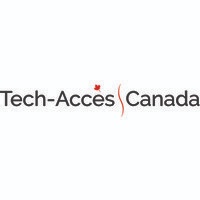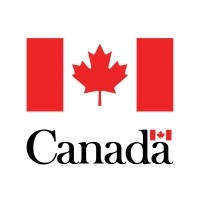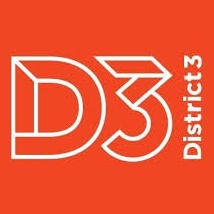
Open
Carbon Capture, Utilization, and Storage (CCUS) Investment Tax Credit (ITC)
Last Update: October 27, 2025
Canada
Financial support for carbon mitigation projects
Tax Credits
At a glance
Funding available
Financing goals
Reduce the ecological footprint
Eligible Funding
- Up to 10% of project cost
Timeline
- Open Date : January 1, 2022
- Closing date : December 31, 2040
Eligible candidates
Eligible Industries
- Utilities
- Construction
- Manufacturing
Location
- Canada
Legal structures
- For-profit business
Annual revenue
- All revenue ranges
Organisation size
- All organization sizes
Audience
- Canadians
Overview
The Investment Tax Credit (ITC) for Carbon Capture, Utilization, and Storage (CCUS) is a refundable tax credit available for eligible expenses incurred in CCUS projects from January 1, 2022, to December 31, 2040. The program supports the acquisition of assets for capturing CO2 emissions from fuel combustion, industrial processes, or direct air capture, and its subsequent transportation, storage, or utilization, provided at least 10% of the captured CO2 is used in qualifying activities like geological storage or concrete production in Canada or the U.S. Eligible applicants are taxable Canadian corporations engaged in CCUS projects.
Activities funded
- Projects capturing carbon dioxide (CO2) emissions from fuel combustion, industrial processes, or directly from the air.
- Projects transporting captured CO2 for further storage or use.
- Projects storing captured carbon in dedicated geological storage facilities.
- Projects using captured carbon in concrete production in Canada or the United States through eligible storage processes.
Eligibility
- The applicant must be a taxable Canadian corporation (including those that are members of a partnership).
- The project must be a Carbon Capture, Utilization, and Storage (CCUS) project with eligible expenditures incurred between January 1, 2022, and December 31, 2040.
- The project must involve capturing CO2 emissions, either from fuel combustion, industrial processes, or directly from ambient air, and transporting, storing, or utilizing the captured carbon in eligible ways.
- At least 10% of the CO2 captured by the project must be used in an eligible manner, such as geological storage or concrete production in Canada or the US.
- The applicant must submit a project plan to Natural Resources Canada (RNCan) and receive an initial project assessment before commercial operations commence (or by a specified deadline if already operational).
Who is eligible?
- Taxable Canadian corporations (including corporations that are members of a partnership)
- Companies with eligible carbon capture, utilization, and storage (CCUS) projects
- Businesses in industrial sub-sectors such as concrete, plastics, and fuels
Who is not eligible
- Organizations seeking to use captured CO2 for enhanced oil recovery or other non-eligible uses.
- Companies that intend to claim more than one clean economy investment tax credit for the same eligible property.
- Applicants seeking to apply for both the CCUS ITC and investment tax credits under section 127 of the Income Tax Act (such as the Atlantic Investment Tax Credit) for the same eligible expense.
Eligible expenses
- Acquisition of equipment and assets used for carbon capture operations.
- Acquisition of equipment and assets used for the transportation of captured carbon.
- Acquisition of equipment and assets dedicated to the use of captured carbon in the production of concrete in Canada or the United States via eligible storage processes.
- Acquisition of equipment and assets required for the dedicated geological storage of captured carbon.
Eligible geographic areas
- Canadian provinces and territories
Selection criteria
- Submission of a detailed project plan as required by Natural Resources Canada (RNCan).
- Completion of the initial project evaluation (including an EIIC and pre-selection questionnaire).
- Provision of sufficient technical documentation to demonstrate that assets qualify as eligible carbon capture, utilization, and storage (CCUS) equipment.
- Response to requests for additional information or documentation if current submissions are deemed insufficient for evaluation.
How to apply
1
Conduct the Initial Environmental Impact Certification (EIIC)
An obligatory step to be performed before submitting the project plan.
2
Complete the Prescreening Questionnaire
Answer the questionnaire to determine your eligibility and that of your project.
3
Prepare and Submit the Project Plan
- Use the secure RNCan portal to upload your project plan.
- Include detailed technical documentation and any other required information.
4
Initial Project Evaluation by RNCan
- RNCan evaluates the submitted project plan for adherence to CUSC criteria.
- Additional information may be requested if the initial documentation is insufficient.
- Receive the initial project evaluation via the RNCan secure portal.
5
Application Decision and Communication
- ARC, in conjunction with RNCan, determines if your CUSC project qualifies as one or multiple projects.
- ARC informs you of the decision regarding project determination.
- For each project determination, submit a project plan within 180 days of the notice.
Additional information
- The CRA administers the credit applications through corporate income tax returns, while NRCan handles technical and scientific evaluations.
- Applicants must use the RNCan secure portal for submitting project plans and for review of evaluations.
- Specific rules prevent claiming both this credit and certain other investment tax credits for the same eligible property or expense.
- If project details change after submission, NRCan may request a revised project plan and updated evaluation.
Apply to this program
Frequently Asked Questions about the Carbon Capture, Utilization, and Storage (CCUS) Investment Tax Credit (ITC) Program
Here are answers to the most common questions about the Carbon Capture, Utilization, and Storage (CCUS) Investment Tax Credit (ITC). This section explains what the program is, how much funding is available, eligibility requirements, application deadlines, and other important details to help you determine if this grant is right for your business.
What is the Carbon Capture, Utilization, and Storage (CCUS) Investment Tax Credit (ITC)?
How much funding can be received?
What expenses are eligible under Carbon Capture, Utilization, and Storage (CCUS) Investment Tax Credit (ITC)?
What is the deadline to apply?
Is the Carbon Capture, Utilization, and Storage (CCUS) Investment Tax Credit (ITC) a grant, loan, or tax credit?
Who are the financial supporters of the Carbon Capture, Utilization, and Storage (CCUS) Investment Tax Credit (ITC)?
Who is eligible for the Carbon Capture, Utilization, and Storage (CCUS) Investment Tax Credit (ITC) program?
Who can I contact for more information about the Carbon Capture, Utilization, and Storage (CCUS) Investment Tax Credit (ITC)?
Where is the Carbon Capture, Utilization, and Storage (CCUS) Investment Tax Credit (ITC) available?
Apply to this program
More programs like this

Tax CreditsOpen
Clean Technology Manufacturing (CTM) Investment Tax Credit (ITC)
Canada Revenue Agency (CRA)Incentivize Canadian companies to invest in clean technology

Grant and FundingClosed
Green Industrial Facilities and Manufacturing Program — Energy Efficiency Solutions Track
Natural Resources Canada (NRCan)Support for industrial energy efficiency in Canada

Grant and FundingClosed
Net Zero Accelerator Initiative
Innovation, Science and Economic Development Canada (ISED)Funding for large-scale industrial decarbonization and clean technology projects

Grant and FundingClosed
Apprenticeship Completion Grant (ACG)
Employment and Social Development Canada (ESDC)Provides financial support for certified apprentices in Red Seal trades

Other SupportOpen
Technology Access Centres (TAC)
Tech-Access Canada (TAC)Access specialized technology, equipment and expertise

Grant and FundingOpen
Disaster Financial Assistance Arrangements (DFAA)
Public Safety Canada (PSC)Provides federal financial assistance for large-scale natural disaster recovery

Other SupportExpert AdviceOpen
District 3 Innovation Center — Launch & Grow
District3Montréal innovation hub

Grant and FundingClosed
NGen — Cluster Accelerator Program
Next Generation Manufacturing Canada (NGen)Strengthen Canada's advanced manufacturing ecosystem

Grant and FundingClosed
Energy Innovation Program — Clean Fuels and Industrial Fuel Switching
Natural Resources Canada (NRCan)Supports industrial decarbonization through clean fuel and fuel switching

Partnering and CollaborationGrant and Fundingarchived
NGen — Cluster Building Project
Next Generation Manufacturing Canada (NGen)Funding to enhance SMEs capabilities and growth
Sign up to our platform to access the Carbon Capture, Utilization, and Storage (CCUS) Investment Tax Credit (ITC) information sheet for free
Get access to 4,000+ programs, practical guides, personalized alerts, and an AI assistant to support your grant applications.